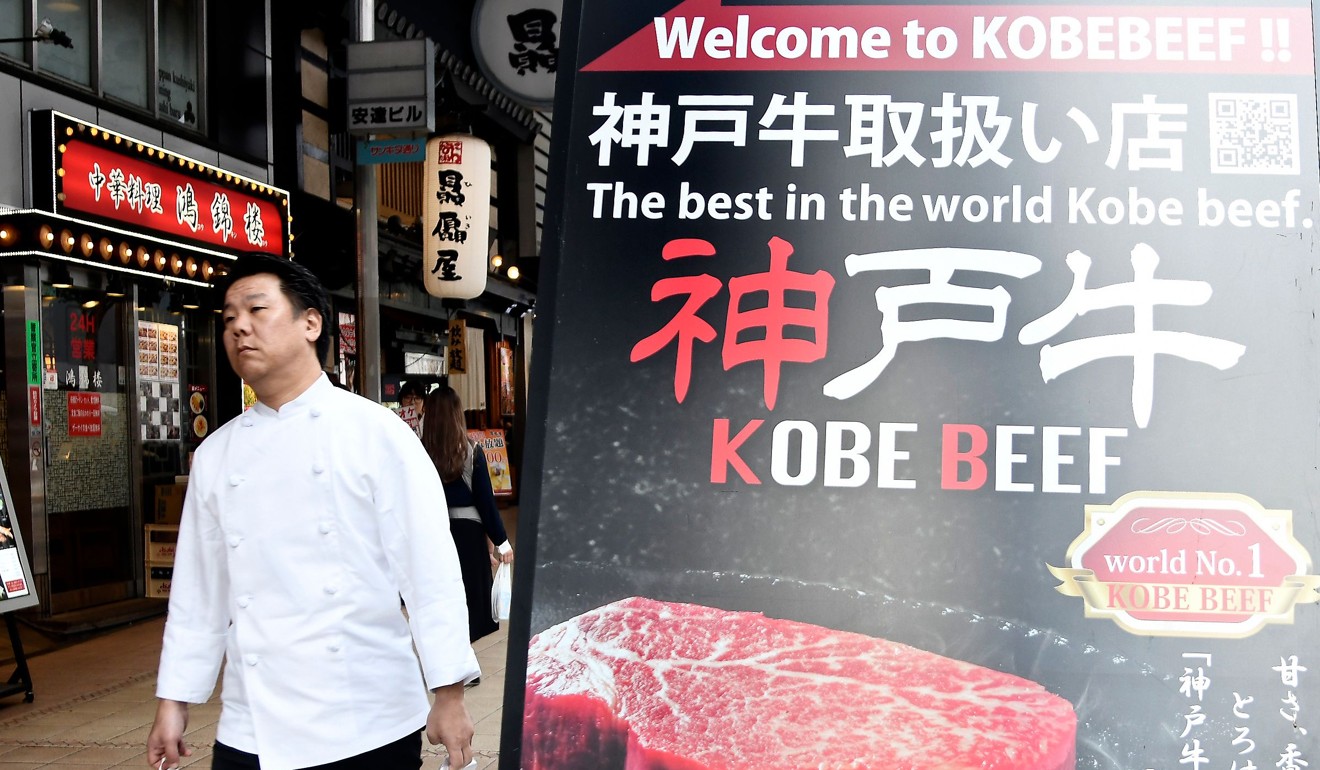
Japan’s prized Kobe beef will be DNA tested to guard against fakes
- The meat is prized for its flavour, tenderness and fatty, marbled texture and served as steak, sukiyaki or teppanyaki
- Kobe beef is widely considered one of the top three brands in the country, along with Matsusaka and Omi beef
To protect the reputations and livelihoods of beef farmers, the Kobe Beef Marketing and Distribution Promotion Association will next month start collecting and storing samples from cattle registered with the organisation. In future, when a Kobe cow is slaughtered the DNA of the meat will be verified against the database and certified as genuine Kobe beef before being sold. The association will also use the database to check beef is labelled as Kobe when sold.
“It is really important that they take this measure because sometimes mistakes can be made – and sometimes they are not mistakes,” said Naoyuki Kitada, a spokesman for the Ganso Teppanyaki Steak Misono restaurant in Kobe.
“At the moment, Kobe beef has to have a certificate to prove it is what it claims to be, but it is not hard to make a certificate. A DNA check is much more reliable.
Japanese police arrest man who took Wagyu cattle sperm to China
“For a restaurant like ours – we opened more than 70 years ago and this was the first teppanyaki restaurant in the world – it is very important that we make sure the quality is good. If we start serving poor-quality beef, then we will lose customers.”
Noriyuki Iwata, head butcher at the specialist Tatsuya Kobe Beef Shop, said his company “always checks and then double-checks” the origin of its beef.

“We have to be sure that we are only serving good quality Kobe beef because this is our business,” he said. “If we make a mistake and sell beef that is not genuine Kobe beef, then no one will believe us again.”
The association stipulates only Wagyu beef from the Tajima strain of Japanese black cattle raised on farms in Hyogo prefecture qualifies as Kobe beef. The cattle are traditionally fed on grain fodder and some farmers go to extraordinary lengths to make sure the beef is in prime condition – including giving the cattle daily massages and buckets of beer. The cattle must also be processed at one of the association’s registered slaughterhouses.
Patriotism vs pay packet: Japan-Korea tensions test migrant workers
The meat is prized for its flavour, tenderness and fatty, marbled texture. It is served as steak, sukiyaki or teppanyaki and Kobe beef is widely considered one of the top three brands in the country, along with Matsusaka and Omi beef.
There are only 3,000 head of cattle registered as from Kobe so prices are high. For example, a five-course meal at Ganso Teppanyaki Steak Misono including 150g of steak costs 20,520 yen (US$190.45).

